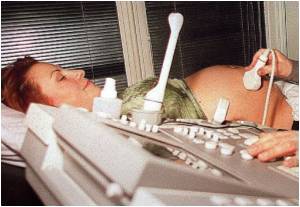The reason why postpartum blues and clinical depression are so common after childbirth has been explained in a new study.

Using an advanced brain imaging method, researchers at the Centre for Addiction and Mental Health discovered that levels of brain MAO-A in healthy women four to six days after delivery were 43 percent greater as compared to women not recently pregnant.
The findings were strongest on day 5, the day when postpartum blues is usually the most severe.
MAO-A removes chemicals like serotonin that help maintain a normal mood. Greater MAO-A levels mean that this removal process is overly active making people feel sad.
"Understanding the biology of postpartum blues is important because when it is severe it leads to clinical level postpartum depression, the most common complication of childbearing affecting 13 percent of mothers, and one that can have a devastating impact. We hope this information may be used in the future to create dietary supplements that could provide the nutrients removed by high MAO-A and lower the risk for postpartum depression," according to Dr. Jeffrey Meyer, principal investigator for the study.
The brain imaging technique is called positron emission tomography (PET). VP of Research Dr. Bruce Pollock explains, "CAMH has the only PET centre in the world dedicated solely to mental health and addiction research. As a result we were able to apply this high level technology to better understand postpartum depression, an important research direction in mood disorders."
Advertisement
RAS











